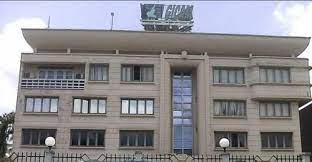The coming months will be decisive for the Cameroonian economy, whose throes of the difficult economic situation on an international scale cast serious doubts on the competitiveness, even the survival of the production tool. The Groupement inter patronal du Cameroun (GICAM) in an alert on November 9, 2021 integrating the negative impact of the health crisis linked to the coronavirus, is particularly worried about the exponential increase in the costs of supplying raw materials and the explosion of sea freight with increases varying between 20 and 400%.
In view of this situation, which could explode if the authorities fail to take effective measures to reverse the current inflationary trend, “the risk of a market supply failure will become real, with a major corollary of a risk of a food crisis and consequences. social inevitable that no one wants ”. As soon as companies will no longer be able to adjust, warns the employers, “they are simply considering stopping import and production activities on January 1, 2022”. Such an outcome would have serious social consequences, while GICAM already deplores more than 14,000 small and medium-sized enterprises (SMEs) that have gone bankrupt and more than 80,000 jobs lost since the outbreak of Covid-19.
However, the employers insist that they have repeatedly drawn the attention of the authorities to the risks run by companies in the current economic situation. Alerts that would not have produced the expected effects since companies deplore “either the lack of adequate measures or the ineffectiveness of those proposed in certain sectors of activity, given their inability to significantly mitigate the impact rising costs ”. On the market, manufactured and agro-food products such as iron, cement, rice, vegetable oils, etc., have seen a price increase of 2 to 20% while other increases are envisaged affecting all production sectors.
“We continue to call for the urgent holding of genuine consultation between the government and the private sector which would guarantee the chances of agreeing on appropriate measures to get out of the current difficulties,” insisted the president of GICAM, Célestin Tawamba.
This debate is revived as the ordinary session of the National Assembly opens on November 11, 2021, devoted to the examination and vote of the budget for the 2022 finance law. On the basis of the preliminary draft text which will be submitted to the national representation, the Minister of Finance, Louis Paul Motazé, indicated that the government takes into account that “the situation is extremely difficult” and that consequently, there will be no “new fiscal measures. Since the Covid-19 crisis, many businesses and economic agents have been impacted. We are obliged to take this situation into account and allow these economic agents to have some measures in their favor for economic recovery ”.
Presented as the most resilient economy in the sub-region by donors, in this case, the World Bank (WB) and the International Monetary Fund (IMF), Cameroon whose growth rate was 3 , 7% in 2019 saw it drop to 0.7% in 2020 due to the pandemic. According to official projections, this growth should resume an evolutionary curve to stand at 3.4% of GDP (Gross Domestic Product) in 2021, before settling at 4.4% in 2022.



